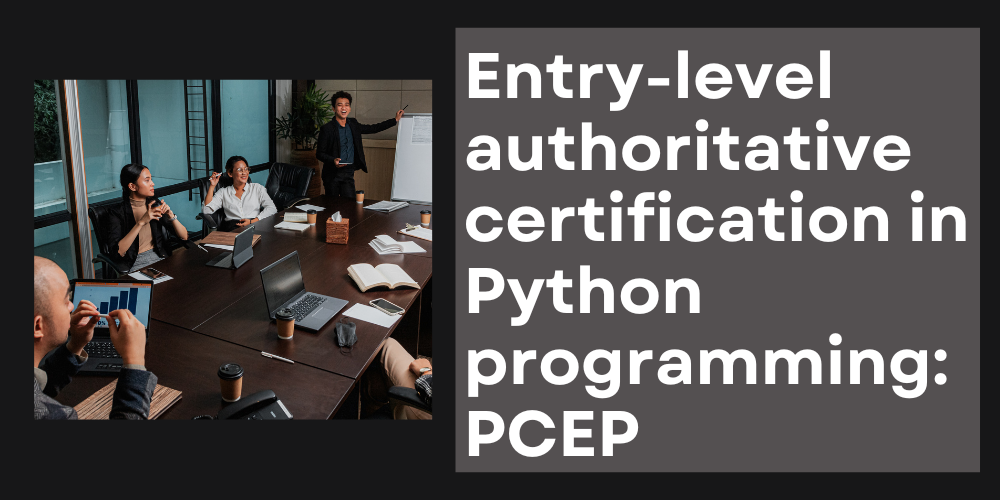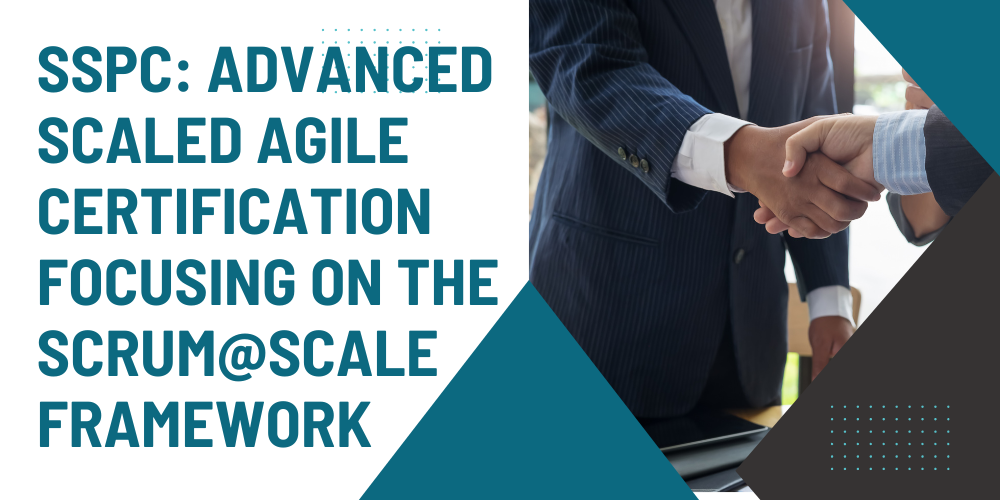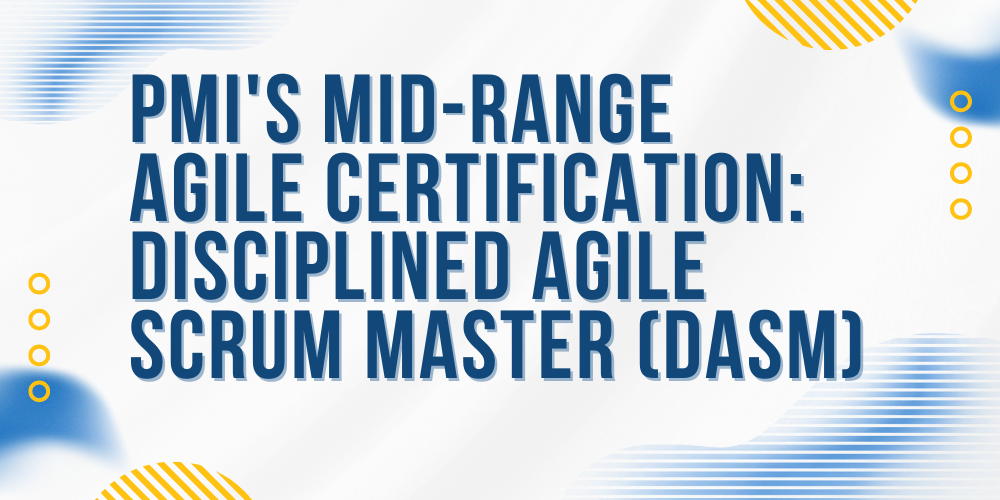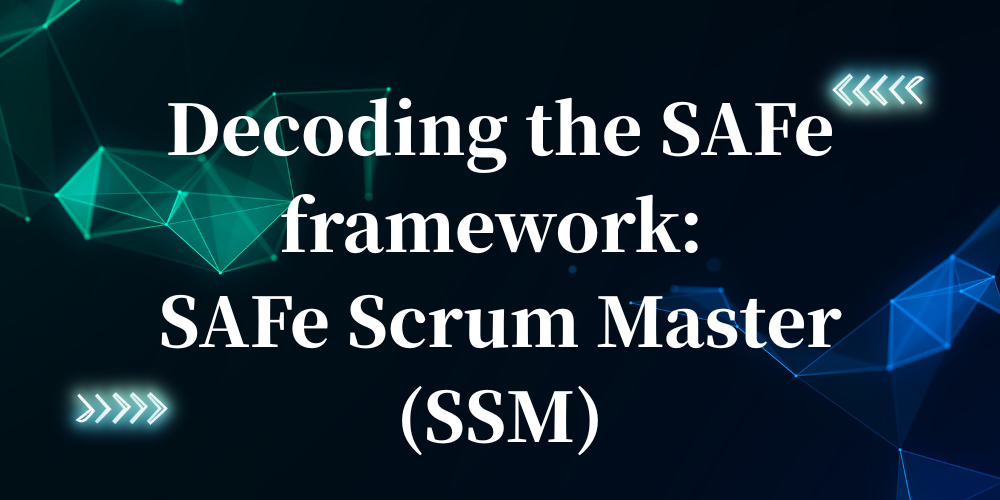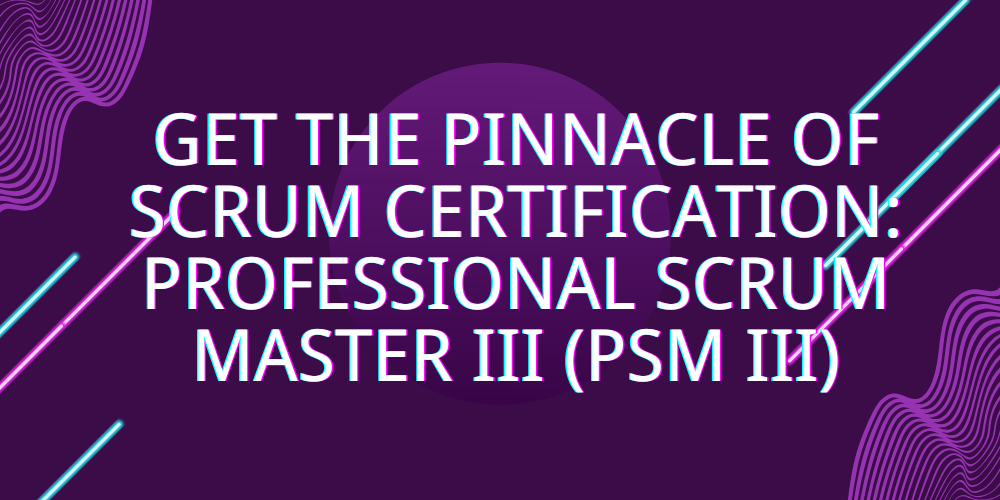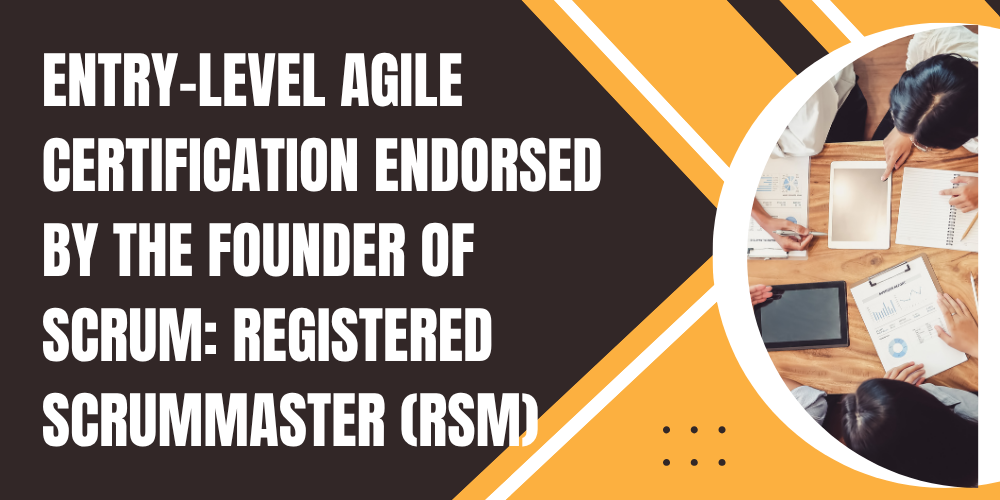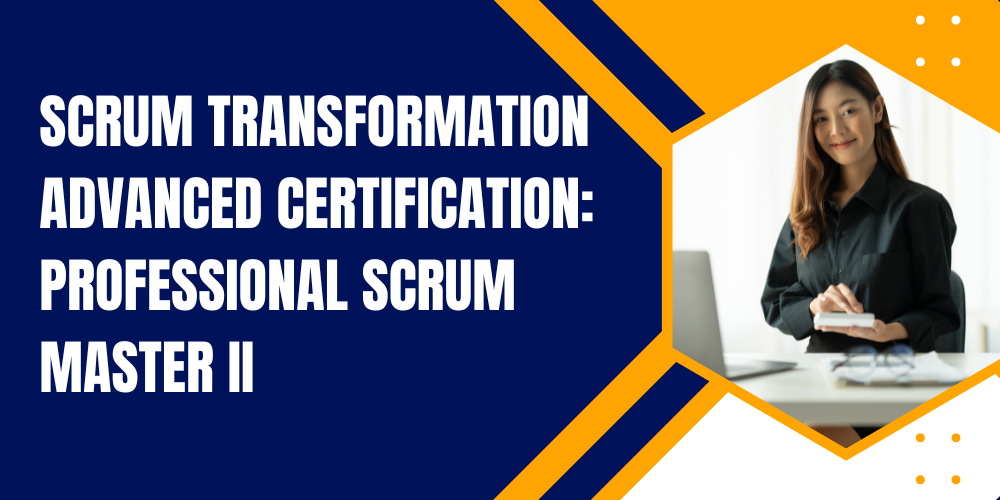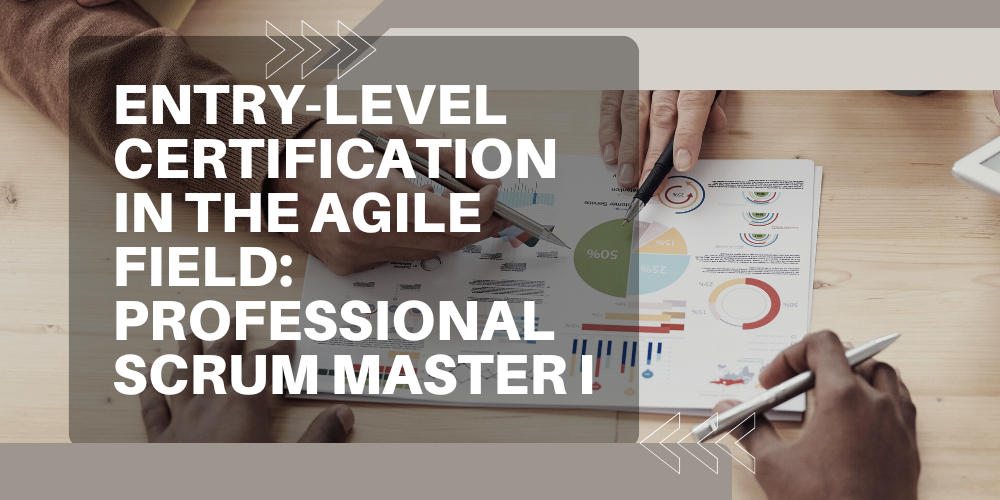TRUSTED BY THE SMARTEST TEAMS IN THE WORLD FOR CERTIFIED CANDIDATES
SPOTO Blogs
Useful learning materials to become certified IT personnel
-
- 838
- SPOTO 2
- 2025-10-28 11:01
-
- 617
- SPOTO 2
- 2025-10-27 15:11
-
- 583
- SPOTO 2
- 2025-10-24 11:01
-
- 660
- SPOTO 2
- 2025-10-24 10:56
-
- 612
- SPOTO 2
- 2025-10-23 15:12
-
- 694
- SPOTO 2
- 2025-10-23 15:08
-
- 613
- SPOTO 2
- 2025-10-22 15:30
-
- 645
- SPOTO 2
- 2025-10-22 15:24
-
- 610
- SPOTO 2
- 2025-10-21 14:52
TRUSTED BY THE SMARTEST TEAMS IN THE WORLD FOR CERTIFIED CANDIDATES
SPOTO Blogs
Useful learning materials to become certified IT personnel
-
- 838
- SPOTO 2
- 2025-10-28 11:01
Table of Contents1. Introduction to the PCEP certification2. The Competitive Edge of a PCEP Certification3. Core Components of the Python Certified Entry-Level Python Programmer Certification4. What are the requirements to be a Python Certified Entry-Level Python Programmer?5. Comparable Certifications to Python Certified Entry-Level Python Programmer Certification PCEP is an entry-level certification in the field of Python programming designed to verify your basic grammar, programming logic, and simple application capabilities. 1. Introduction to the PCEP certification Python Certified Entry Level Python Programmer (PCEP) is an entry-level Python programming certification launched by the Python Institute, focusing on verifying beginners' mastery of Python core syntax, basic programming concepts, and simple application development. PCEP is aimed at zero or beginner Python learners, aiming to establish a standardized Python introductory ability assessment system. It is an authoritative qualification for entering the Python development field and proving basic programming abilities. In the context of Python's widespread application in fields such as data analysis, automation, and web development, basic programming skills are the core threshold for entering the industry. The core positioning of PCEP certification is to cultivate and certify "beginners with Python basic programming thinking and practical skills," rather than simply "syntax memorizers." It requires the holder to not only be able to write grammatically correct code, but also understand basic programming logic, solve simple business problems, and lay the foundation for further learning advanced Python technology. These types of talents are usually capable of supporting basic Python related positions. 2. The Competitive Edge of a PCEP Certification PCEP is a globally recognized Python beginner certification, officially issued by the Python Institute, with high recognition in the IT industry. It can quickly prove a candidate's basic Python skills and avoid controversies over resume fraud. In the recruitment of entry-level Python related positions in China, PCEP certification is often listed as a "priority condition," and the starting salary of certified candidates is generally 10%-20% higher than that of non certified candidates. PCEP is the first level of the Python Institute certification system, which allows for clear planning of advanced directions and avoids blind learning after certification. Standardized exams can verify learning outcomes and help beginners build confidence in programming. At the same time, official learning resources can assist the system in mastering knowledge and avoid weak foundations caused by "fragmented learning." 3. Core Components of the Python Certified Entry-Level Python Programmer Certification PCEP certification, as an entry-level authoritative certification for Python programming, has established a complete knowledge system for Python 3.x basic programming. PCEP certification comprehensively covers six core competency modules, and the basic syntax and environment configuration module helps students master the construction of Python development environment, deeply understand basic syntax elements such as variables, data types, and operators, and establish standardized coding habits. The programming logic structure unit focuses on training the use of conditional control and loop structures, cultivating students' ability to use if elif else statements for conditional judgment and for and while loops to solve repetitive tasks through practical cases. The basic section of data structures provides a detailed explanation of operations on sequence types enable students to effectively organize and process program data. The functional programming concept module guides students to understand the definition and calling mechanism of functions, master parameter passing and return value usage. The file and exception handling section teaches basic file read and write operations and exception capture mechanisms, ensuring that students can write robust program code and handle runtime error situations properly. The cultivation of programming thinking runs through the entire learning process, by training students to transform practical problems into code logic, enhancing their ability to analyze and solve problems. The Python Certified Entry Level Python Programmer places special emphasis on the combination of theory and practice, using numerous examples to help beginners gradually master programming skills. It includes detailed syntax analysis and full process guidance from environment configuration to code debugging, providing beginners with a systematic Python learning path. 4. What are the requirements to be a Python Certified Entry-Level Python Programmer? (1) Qualification prerequisites: Python Certified Entry-Level Python Programmer No strict educational or work experience requirements, suitable for beginners in programming or practitioners who need to verify basic Python skills. The Python Institute recommends that you master the basics of middle school mathematics without any additional programming experience. You can prepare for the exam through the official courses or introductory textbooks of the Python Institute. (2) Training and examinations: Python Certified Entry Level Python Programmer has a total of 50 objective questions, including multiple choice questions, true/false questions, and code completion questions. The exam lasts for 45 minutes. Full score of 100 points, reaching 70 points or above is sufficient to pass. The exam fee is approximately $150, with slight differences in different regions, and can be registered through Python Institute authorized training institutions. (3) Qualification maintenance: The Python Certified Entry Level Python Programmer certificate is valid for life and does not require renewal. But Python technology updates quickly, it is recommended that you continue to learn advanced content to maintain competitiveness. 5. Comparable Certifications to Python Certified Entry-Level Python Programmer Certification Certified Associate in Python Programming (PCAP) Microsoft Technology Associate (MTA) – Python (98-381) Certified Python Programmer (CPP) CompTIA IT Fundamentals+ (ITF+)  -
- 617
- SPOTO 2
- 2025-10-27 15:11
Table of Contents1. Introduction to the CLP certification2. The Competitive Edge of a CLP Certification3. Core Components of the Certified LeSS Practitioner Certification4. What are the requirements to be a Certified LeSS Practitioner?5. Comparable Certifications to Certified LeSS Practitioner Certification The Certified LeSS Practitioner (CLP) is a scaled agile certification focused on the LeSS framework, aiming to develop the ability to drive multi-team collaboration. 1. Introduction to the CLP certification Certified LeSS Practitioner (CLP) is a professional certification launched by LeSS.org, the official organization for large-scale Scrum frameworks, focusing on verifying the ability to scale the application of the LeSS framework in multi team collaboration scenarios. CLP certification is based on the core principles of Scrum, combined with lean thinking and systems thinking, to cultivate practitioners who can design multi team collaboration mechanisms and promote the efficiency improvement of large-scale product development. It is suitable for agile coaches, Scrum Masters, and product owners who need to deliver complex products through dozens of teams. When a company needs to collaborate with more than 10 Scrum teams to deliver large products, the Scrum practice of a single team is difficult to address pain points such as goal alignment, dependency management, and process redundancy. The core positioning of CLP certification is to cultivate "LeSS framework implementers and multi team collaboration drivers," help organizations break down team barriers, establish a scaled collaboration system that conforms to the LeSS concept with "simplifying processes and focusing on value" as the core, ensure efficient collaboration among all teams around a unified product vision, and avoid the trap of "scale equals complexity." These types of talents usually play the role of "collaborative hubs for large-scale product development," balancing local efficiency and overall value. 2. The Competitive Edge of a CLP Certification CLP is the official certification of the LeSS framework and is highly recognized among enterprises that focus on "simplifying and scaling." It is a core qualification for applying for the position of "agile management of large products" and has increased competitiveness by more than 40% compared to ordinary Scrum certification holders. CLP certification training focuses on "case exercises+problem solving" rather than pure theory, and can be directly applied to multi team projects after learning, avoiding the embarrassment of "not being able to use it after learning." According to industry data, the average annual salary of CLP holders is 35%-50% higher than that of ordinary Scrum Masters. CLP holders can join the LeSS global community to access the latest LeSS practice cases, participate in online seminars, connect with global LeSS expert resources, and continuously improve their scale agile capabilities. 3. Core Components of the Certified LeSS Practitioner Certification The CLP certification system has built a scaled agile practice system based on the LeSS framework, focusing on achieving efficient collaboration among multiple teams while maintaining Scrum simplicity. CLP certification builds a complete capability framework around five core modules, with a deep analysis of the essence of scale agile based on the LeSS framework, mastery of the applicable scenarios of LeSS Basics and LeSS Huge modes, and understanding the specific application of the ten guiding principles in practice. Establish a multi team collaboration mechanism to create a single product to-do list and a single product owner system, ensure cross team understanding through requirement refinement workshops, and design a feature team transformation path to enhance end-to-end delivery capabilities. Redesign the event optimization system for Scrum events in large-scale scenarios, including hierarchical planning meetings, two-level station meeting systems, hierarchical review mechanisms, and overall product review meetings, to ensure collaboration efficiency and overall value delivery. The role responsibility upgrade elevates the Scrum Master to a multi team collaboration coach, strengthens the global decision-making ability of the Product Owner, promotes the transformation of management to an environment builder, and provides organizational support for large-scale practice. Problem diagnosis and improvement identify typical problems such as team transformation and dependency deadlocks, develop solutions through tools such as value stream analysis, and establish improvement community mechanisms to promote continuous optimization. CLP places special emphasis on cultivating students' ability to implement scaling while maintaining the essence of Scrum, and helps practitioners master key skills for simplifying collaboration processes and eliminating organizational waste through real-life cases. It includes in-depth analysis of the LeSS framework and full process practice from team transformation to organizational support, helping students build comprehensive capabilities to promote scale agile implementation. 4. What are the requirements to be a Certified LeSS Practitioner? (1) Qualification prerequisites: The prerequisite for obtaining CLP certification is that you have a solid foundation in Scrum. LeSS.org recommends that you hold Scrum certifications or have more than 1 year of Scrum Master/Product Owner practical experience and understand the core events and artifacts of Scrum. In addition, you also need to participate in the official CLP 3-day training course authorized by LeSS.org, taught by certified LeSS trainers (CLT). The course focuses on practical case analysis and group exercises, rather than pure theoretical explanations. (2) Training and examinations: CLP certification does not have a separate exam, and students are required to complete a 3-day training course and actively participate in classroom discussions. The trainer will evaluate their understanding and implementation ability of LeSS principles, and those who pass will receive certification. The training fee varies by region and training institution. (3) Qualification maintenance: CLP certification has no fixed validity period, but LeSS.org encourages holders to participate in LeSS community activities or advanced training every 2 years to update their knowledge system. After completing CLP certification, you can further take the "Certified LeSS Coach (CLC)" exam, focusing on the design and coaching capabilities of organizational level LeSS transformation. 5. Comparable Certifications to Certified LeSS Practitioner Certification Scaled Professional Scrum (SPS) Certified Scrum@Scale Practitioner (CSSP) SAFe Program Consultant (SPC) Professional Scrum Master III (PSM III) -
- 583
- SPOTO 2
- 2025-10-24 11:01
Table of Contents1. Introduction to the Scaled Scrum Professional certification2. Career Value of Holding the Scaled Scrum Professional Certification3. Core Components of the Scaled Scrum Professional Certification4. What are the requirements to be a Scaled Scrum Professional?5. Comparable Certifications to Scaled Scrum Professional Certification SSPC is a certification in scaled agile that focuses on the Scrum@Scale framework and cultivates the ability to promote agile transformation and cross-team collaboration. 1. Introduction to the Scaled Scrum Professional certification Scaled Scrum Professional Certification (SSPC) is an advanced certification launched by Scrum Inc., focusing on the practical ability to apply Scrum at scale in large organizations or complex projects, based on Scrum Inc.'s “Scrum@Scale” framework, cultivating professional talents who can design cross team collaboration mechanisms, drive organizational level agile transformation, and achieve large-scale value delivery, suitable for managers or senior Scrum Masters responsible for multi team collaboration and enterprise level agile implementation. When a company needs to collaborate with dozens or even hundreds of Scrum teams to deliver super large products, the Scrum practice of a single team is difficult to solve scaling challenges such as goal alignment, dependency management, and organizational barriers. The core of SSPC certification is to cultivate "architects and drivers of organizational level scaling Scrum," based on Scrum@Scale Framework helps enterprises break down departmental walls, establish a "transparent, synchronized, and self-organizing" cross team collaboration system, ensure efficient collaboration among all teams around a common corporate vision, and achieve a leap from "team level agility" to "organizational level agility" These types of talents usually play the role of "engines for scaling agile transformation," balancing local efficiency and overall value. 2. Career Value of Holding the Scaled Scrum Professional Certification SSPC is based on the Scrum Founder's Team Scrum@Scale Framework is a core qualification for verifying organizational level agile implementation capabilities, highly recognized in agile transformation projects of large enterprises, and serves as a "passport" to participate in high-value transformation projects. Compared to practitioners who only master single team Scrum, SSPC holders are more likely to be promoted to senior management positions such as "Agile Director" and "Transformation Leader." The training and examination process covers Scrum@Scale The complete practical system helps you master replicable large-scale design methods and avoid the transformation detours caused by "empiricism." After obtaining SSPC certification, you can join Scrum Inc.'s scaled agile community and directly access Jeff Sutherland's team's latest practice cases, participate in global high-end forums, connect with experts in the same field, and provide reference for complex transformation projects. 3. Core Components of the Scaled Scrum Professional Certification SSPC certification is based on the Scrum@Scale Framework, focusing on the full process practice of enterprise level scale agile transformation. SSPC certification system deeply analyzes the core principles of the Scrum@Scale framework. The logic of scaling up, mastering the alignment mechanism between global goals and team goals, and understanding the collaborative operation of core components such as Meta Scrum and execution action teams. Goal alignment and value stream design are achieved through tools such as OKR to decode strategies, establish a value transmission chain from enterprise vision to team tasks, and optimize end-to-end delivery efficiency using methods such as value stream mapping. The cross team collaboration mechanism system relies on multidimensional dependencies, and establishes a multi-level synchronization mechanism such as daily site meetings, integrated reviews, and large-scale reviews to ensure transparency and response speed in large-scale collaboration. Organizational transformation promotes the diagnosis and resolution of organizational level barriers, drives the evolution of organizational structure towards product oriented teams. Build a measurement system to design global indicators such as end-to-end delivery cycle and value delivery frequency, establish a data-driven continuous improvement cycle, and avoid local optimization traps. SSPC places special emphasis on cultivating students' ability to drive change in complex organizational environments, using real-life cases to help them master key skills for implementing agile scaling. It includes in-depth interpretation of framework theory and full process practice from strategic alignment to execution, helping you build comprehensive capabilities to drive enterprise level agile transformation. 4. What are the requirements to be a Scaled Scrum Professional? (1) Qualification prerequisites: You need to first obtain the Registered ScrumMaster certification from Scrum Inc. and have a solid foundation in single team Scrum. Scrum Inc. recommends that you have more than 2 years of experience in team collaboration or large-scale projects, and have participated in at least 1 large-scale agile practice project. In addition, you also need to participate in Scrum Inc. authorization “Scrum@Scale” official training courses focus on practical design and case analysis of large-scale frameworks. (2) Training and examinations: The SSPC exam consists of 50 multiple-choice questions and situational analysis questions, with a duration of 90 minutes. Those who answer 70% or more correctly can pass, with a focus on analyzing and designing solutions for large-scale scenarios. (3) Qualification maintenance: The SSPC certificate is valid for 2 years and requires participation in Scrum Inc. recognized large-scale agile continuing education events and industry summits during the validity period, accumulation of 24 Scrum education credits, and payment of approximately $150/2-year renewal fee. 5. Comparable Certifications to Scaled Scrum Professional Certification Scrum@Scale Practitioner SAFe Scrum Master (SSM) Certified LeSS Practitioner (CLP) -
- 660
- SPOTO 2
- 2025-10-24 10:56
Table of Contents1. Introduction to the Disciplined Agile Scrum Master certification2. The Competitive Edge of a DASM Certification3. Core Components of the DASM Certification4. What are the requirements to be a DASM?5. Comparable Certifications to Disciplined Agile Scrum Master Certification DASM is a mid-range agile certification launched by PMI that flexibly combines Scrum according to specific scenarios, rather than being limited to a single framework. 1. Introduction to the Disciplined Agile Scrum Master certification The Disciplined Agile Scrum Master (DASM) is an agile certification launched by the Project Management Institute (PMI), belonging to the Disciplined Agile (DA) framework system. It focuses on cultivating professional talents who can flexibly apply Scrum and other agile practices in complex and changing environments, guide teams to deliver value. DASM emphasizes "situational adaptation," which means selecting the most suitable agile method based on factors. It is a mid-range agile certification that balances flexibility and practicality. In practical work, a single agile framework often struggles to handle complex scenarios. The core positioning of DASM certification is to cultivate "contextualized agile practitioners and flexible guides" rather than "executors of a single framework." The certificate holder needs to master the "lean agile thinking" of the DA framework, be able to choose suitable practices from various agile methods such as Scrum, Kanban, XP, etc. according to specific situations, balance "agile flexibility" and "organizational standardization," and ultimately promote efficient team delivery and support organizational level agile capability building. These types of talents usually play the role of "tailors and team enablers of agile practices," balancing method adaptation with business objectives. 2. The Competitive Edge of a DASM Certification DASM is launched by PMI, the world's largest project management organization, which combines PMI's authority in project management with the contextual advantages of DA framework. It is highly recognized in traditional enterprises and is particularly suitable for industries that need to balance "agile innovation" and "compliance management." Compared to pure Scrum certification, DASM provides a "Method Selection Guide" to help practitioners avoid a "one size fits all" approach in complex scenarios, quickly find suitable agile practice combinations, and enhance flexibility in solving practical problems. For traditional project managers, DASM is a smooth path for agile transformation, which can be integrated with PMI's certification system to form a composite capability of "project management + agile practice." By obtaining the DASM certification and joining PMI's agile community, you can access the latest practice cases and tool templates of the DA framework, and communicate with global agile practitioners on complex scenario solutions. 3. Core Components of the DASM Certification DASM certification is based on the Disciplined Agile framework, which constructs a complete capability system covering agile thinking, practical methods. DASM certification breaks through the limitations of a single agile method and focuses on selecting the most suitable combination of agile practices in different business scenarios. The DA framework deeply analyzes the core concept of "agile methods" and masters the art of balancing the three pillars of agile mindset, lean thinking, and governance compliance. Team guidance techniques utilize the team maturity model for diagnosis, mastering comprehensive guidance skills from improving internal team skills to clearing cross departmental obstacles The organizational collaboration mechanism promotes the deep integration of team practice and organizational strategy, ensuring that agile delivery serves the overall goals of the enterprise. Scrum extension application is based on proficiency in standard Scrum practices, learning how to expand role configuration according to team size complexity, optimize event flow, and introduce risk management tools Situational approach selection cultivates the ability to select agile practice combinations based on project characteristics through systematic decision flowcharts, achieving precise matching between methodology and business scenarios. Establish a continuous improvement system that covers delivery cycles, quality indicators, and team satisfaction, and continuously optimize agile practices through data-driven approaches. DASM certification places special emphasis on cultivating your judgment and adaptability in complex environments. It includes in-depth analysis of theoretical frameworks and full process skills from team practice to organizational collaboration, helping you build a comprehensive ability to flexibly apply agile methods in different business scenarios. 4. What are the requirements to be a DASM? (1) Qualification prerequisites: DASM certification does not have strict educational or work experience requirements, but PMI recommends that you have basic knowledge of Agile or Scrum. Certification does not require mandatory training, but PMI recommends attending authorized DASM training courses to systematically master the DA framework and contextualized practice methods. (2) Training and examinations: DASM has a total of 50 multiple-choice questions, with a test duration of 90 minutes. Answering 30 or more questions correctly will result in passing. The individual exam fee is $300 for PMI members or $400 for non members. If attending the training, the cost will increase appropriately. (3) Qualification maintenance: The DASM certificate is valid for 3 years and requires the accumulation of 60 professional development units during the validity period. It can be obtained through participating in agile training, writing articles, and participating in community activities; No renewal fee is required, but PMI membership must be maintained. 5. Comparable Certifications to Disciplined Agile Scrum Master Certification Certified Scrum Master (CSM) Professional Scrum Master I (PSM I) Professional Kanban Foundation (PKF) SAFe 5 Scrum Master (SSM) -
- 612
- SPOTO 2
- 2025-10-23 15:12
Table of Contents1. Introduction to the SAFe Scrum Master certification2. The Competitive Edge of a SAFe Scrum Master Certification 3. Core Components of the SAFe Scrum Master Certification4. What are the requirements to be a SAFe Scrum Master?5. Comparable Certifications to SAFe Scrum Master Certification SAFe Scrum Master (SSM) is a key qualification for an organization's agile transformation, cultivating the ability to lead and scale collaboration within Scrum teams. 1. Introduction to the SAFe Scrum Master certification The SAFe Scrum Master (SSM) is an agile certification developed by Scaled Agile, Inc., focusing on the guidance of Scrum teams and scaled collaboration within the SAFe framework. It aims to cultivate professionals who can proficiently apply the SAFe framework, lead Scrum teams to deliver value efficiently. This certification is suitable for practitioners in mid-to-large organizations adopting the SAFe framework, who are responsible for implementing team-level agile practices. In large enterprises adopting the SAFe framework, the practice of a single Scrum team must be integrated into the organizational-level agile system to achieve a balance between "local efficiency" and "overall alignment." The core of SSM certification is to cultivate "team-level agile enablers and collaborators under the SAFe framework." It not only requires certified individuals to master traditional Scrum practices but also demands proficiency in SAFe's unique large-scale collaboration mechanisms. These professionals help teams achieve rapid iteration and value delivery under enterprise-level objectives while bridging cross-team processes. Such talents balance team internal efficiency with organizational-level coordination. 2. The Competitive Edge of a SAFe Scrum Master Certification SSM is the authoritative certification for team level agile implementation under the SAFe framework. It is highly recognized in large enterprises that adopt SAFe and is the "hard currency" for entering agile positions in such organizations. The SSM certification learning process covers key practices unique to SAFe helps you master the core methods for agile implementation in medium to large organizations and address the pain points of traditional Scrum in large-scale scenarios. According to industry data, SSM holders in companies adopting SAFe earn 25%-40% more than regular Scrum Masters. SSM certified holders can join the SAFe global community to access the latest SAFe practice cases, toolkits, and industry connections, participate in SAFe official events, and continuously follow the forefront trends of scale and agility. 3. Core Components of the SAFe Scrum Master Certification The SSM certification system has built a team level practical capability system under the SAFe scale agile framework, focusing on the deep integration of Scrum methods and scale agile frameworks. SSM certification deeply analyzes the four hierarchical structures and three pillar theories around the SAFe framework basic modules, helping students establish a complete scale agile cognitive system and clarify the positioning and value of Scrum teams in the SAFe environment. The Scrum Team Practice Unit focuses on training teams on collaborative work patterns in ART, including key skills such as PI cycle alignment and built-in quality practices, to ensure that team delivery meets the quality standards of agile scaling. The large-scale collaboration mechanism covers important activities such as PI planning and ART meetings, cultivating students' ability to handle cross team dependencies and risk management, and establishing an end-to-end collaborative perspective. The Scrum Master's responsibilities redefine the role and mission in the SAFe environment, expanding from team guidance to system promotion and cross team collaboration, forming multidimensional service leadership. The Lean Agile Integration module combines traditional Scrum practices with lean thinking and systems thinking, introducing practical tools such as PI target tracking and ROAM risk list to enhance the ability to solve complex problems. SSM certification places special emphasis on cultivating students' adaptability and execution skills in large organizational environments, helping them master key techniques for effectively connecting team level agility with scalable frameworks through real-life cases. It includes both systematic learning of the SAFe framework and full process skill training from team practice to project collaboration, helping you build comprehensive capabilities to drive agile implementation in complex organizational environments. 4. What are the requirements to be a SAFe Scrum Master? (1) Qualification prerequisites: There is no mandatory prerequisite certification requirement for SAFe Scrum Master (SSM) certification, but SAFe recommends that you have a Scrum foundation or at least 1 year of Scrum team practice experience. In addition, you also need to attend the "SAFe Scrum Master" training course authorized by Scaled Agile and obtain a certificate of completion before you can register for the exam. (2) Training and examinations: The SAFe Scrum Master (SSM) exam consists of 45 multiple-choice questions and lasts for 90 minutes. The maximum score for the exam is 100 points, and a score of 70 or above is required to pass. (3) Qualification maintenance: The SAFe Scrum Master (SSM) certificate is valid for one year. During the validity period, you need to accumulate 45 Professional Development Units (PDUs) and pay a renewal fee of approximately $100 per year by participating in Scaled Agile officially recognized continuing education activities. You must also sign the SAFe Code of Conduct and continue to practice the SAFe values. 5. Comparable Certifications to SAFe Scrum Master Certification Scaled Scrum Professional Certification (SSPC) Scaled Professional Scrum (SPS) SAFe Advanced Scrum Master (SASM) International Consortium for Agile (ICAgile) Certified Professional in Agile Coaching (ICP-ACC) -
- 694
- SPOTO 2
- 2025-10-23 15:08
Table of Contents1. Introduction to the PSM III certification2. Career Value of Holding the PSM III Certification3. Core Components of the Professional Scrum Master III Certification4. What are the requirements to be a PSM III?5. Comparable Certifications to Professional Scrum Master III Certification PSM III is the pinnacle of the Scrum certification system, which aims to cultivate agile strategic experts with systemic thinking and organizational change leadership. 1. Introduction to the PSM III certification Professional Scrum Master III (PSM III) is the highest level certification in the Scrum certification system launched by Scrum.org, focusing on verifying your Scrum deep practice ability, coaching leadership, and organizational level agile change driving ability in extremely complex scenarios. It requires you not only to be a "master" of the Scrum framework, but also a "strategic expert" who can diagnose and solve the core pain points of organizational agile transformation and shape agile culture. It is one of the most valuable authoritative qualifications in the Scrum field. When enterprises face extreme challenges such as large-scale agile transformation resistance, complex cross departmental collaboration deadlock, and agile adaptation under high compliance requirements, ordinary Scrum Masters find it difficult to break through the limitations of the "team level." The core of PSM III certification is to cultivate "agile strategic experts with systems thinking and change leadership," rather than simply process guides. The certificate holder needs to be like an "organizational agile doctor," diagnosing the deep problems of organizational agile transformation from a strategic perspective, promoting systematic organizational change through coach style intervention and influence building, and designing sustainable Scrum practice systems for multiple teams, or even the entire organization. These types of talents usually play the role of "leaders of organizational agile transformation," balancing short-term business goals with long-term agile capability building. 2. Career Value of Holding the PSM III Certification PSM III is the "crown level" certification in the Scrum field, issued by Scrum.org, founded by Scrum founder Ken Schwaber. With less than 10000 global holders, it is highly recognized among multinational corporations and is the core symbol of "expert level" identity in the Agile field. Compared to PSM II or other agile certifications, PSM III holders almost monopolize top positions such as "Agile Director" and "Enterprise Transformation Leader." The high difficulty exams and strict practical requirements ensure that you can handle extreme scenarios that ordinary Scrum Masters cannot solve, becoming the "core think tank" for enterprise agile transformation. Having PSM III certification allows one to join Scrum.org's "PSM III Elite Community" and directly connect with top Scrum experts worldwide, participate in closed door seminars. 3. Core Components of the Professional Scrum Master III Certification PSM III certification, as the highest professional level certification in the Scrum field, marks the leap of practitioners from practitioners to leaders of organizational change. The PSM III certification system breaks through the traditional Scrum process framework, achieving a clear understanding of the essence and philosophy of the framework through empirical and complex adaptive system theory. It can design customized Scrum systems for complex scenarios to achievie precise adaptation of the framework to business characteristics. Organizational transformation architecture design identifies and breaks through fundamental barriers such as functional barriers and assessment conflicts, develops a transformation roadmap from pilot teams to the entire organization's agile culture, and promotes the restructuring of organizational structure and processes. The ability to make complex risk decisions in extreme scenarios such as distributed teams and large-scale dependencies, using systems thinking tools to analyze risk transmission paths and establish a forward-looking risk management system. Agile culture shapes the implementation mechanism of design values and the construction plan of psychological safety environment, elevating agility from process methods to organizational culture. Inheriting and cultivating an internal coaching team, building a replicable knowledge management system, and ensuring the continuous evolution of organizational capabilities. PSM III certification places special emphasis on cultivating students' systematic thinking and change driving abilities at the strategic level. A complete system covering philosophical theories and practical tools, providing students with comprehensive solutions to address the complex challenges of modern enterprises. 4. What are the requirements to be a PSM III? (1) Qualification prerequisites: You need to first obtain the Professional Scrum Master II (PSM II) certification and have a solid foundation in mid to high-level Scrum practices. Scrum.org recommends that you have at least 3 years of Scrum Master practical experience and have participated in at least 1 complete organizational level agile transformation project, experiencing problem-solving in complex scenarios. Scrum.org does not have mandatory training requirements, but we strongly recommend that you participate in advanced specialized training taught by a Professional Scrum Trainer (PST), focusing on complex scenario case analysis and coaching skills polishing. (2) Training and examinations: The Professional Scrum Master III exam consists of 30 situational analysis questions, with a focus on "complex problem diagnosis and solution design." The exam lasts 120 minutes longer than PSM II and requires a thorough analysis of complex scenarios. A perfect score of 100 is required to achieve a score of 90 or above to pass. The global pass rate is only about 10%-15%, making it one of the most difficult exams in Scrum certification. The exam fee is approximately $500. It is particularly important to note that scoring not only tests the correctness of answers, but also emphasizes the "logicality of solutions, degree of adherence to Scrum principles, and flexibility in dealing with complex scenarios." Open ended questions need to clearly explain the decision-making basis. (3) Qualification maintenance: The Professional Scrum Master III certificate is valid for life and does not require renewal, but Scrum.org encourages holders to maintain their learning by participating in Scrum.org's "Professional Scrum Contributor" program, sharing practical cases or writing professional articles, or serving as Scrum.org community instructors or teaching assistants in certification training courses. 5. Comparable Certifications to Professional Scrum Master III Certification Advanced Certified Scrum Master - Level 3 (A-CSM 3) SAFe Program Consultant 6.0 (SPC 6.0) Certified Enterprise Coach (CEC) -
- 613
- SPOTO 2
- 2025-10-22 15:30
Table of Contents1. Introduction to the Registered ScrumMaster certification2. The Competitive Edge of a RSM Certification 3. Core Components of the Registered ScrumMaster Certification4. What are the requirements to be a registered ScrumMaster?5. Comparable Certifications to Registered ScrumMaster Certification Registered ScrumMaster is an entry-level agile certification endorsed by the founder that focuses on the precise implementation of Scrum practices and team empowerment. 1. Introduction to the Registered ScrumMaster certification Registered ScrumMaster (RSM) is an entry-level agile certification launched by Scrum Inc., focusing on the practical implementation of the Scrum framework and team guidance capabilities. It aims to cultivate professional talents who can proficiently apply Scrum core practices, remove team barriers, and promote efficient value delivery. It is one of the authoritative entry-level qualifications for entering the Scrum field. In the enterprise environment of accelerated agile transformation, teams need mentors who understand both the Scrum process and can flexibly implement it. The core of RSM certification is to cultivate "precise executors and team enablers of Scrum practices," emphasizing the original ideas of Scrum founders, helping teams break free from traditional management constraints, and achieving rapid iteration and value delivery through standardized execution of Scrum events and optimized collaboration processes. These types of talents usually play the role of "team efficiency catalysts" and need to focus on solving practical problems. 2. The Competitive Edge of a RSM Certification RSM is awarded by Scrum Inc., founded by Scrum founder Jeff Sutherland. The certification content adheres to the original Scrum philosophy and is highly recognized in enterprises that emphasize "orthodox Scrum practices." Training and exams focus on "practical skills" rather than pure theory, and can be directly applied to team management after learning, optimizing Scrum event processes, solving practical obstacles, and suitable for practitioners who focus on practical results. As an entry-level certification in the Scrum field, RSM is an important qualification for job seekers seeking entry-level ScrumMaster positions. With RSM certification, you can join the Scrum Inc. global community, access Jeff Sutherland's latest practical cases, participate in official online seminars, and directly learn from the founder's cutting-edge experience. 3. Core Components of the Registered ScrumMaster Certification RSM certification deeply inherits the practical essence of Scrum founder Jeff Sutherland and constructs a complete certification system from theory to practice. The RSM certification focuses on the in-depth analysis of Scrum core theoretical modules and the original framework design concepts, emphasizing the practical application of empiricism in iterative feedback and helping learners understand the inherent logical relationship between values and framework components. The Role Based Collaborative Unit trains the collaborative mechanisms of the three main roles through real-life scenarios, with a focus on developing the Scrum Master's ability to clear obstacles, the Product Owner's ability to make value decisions, and the development team's self-organizing ability. The efficient execution phase of events provides specific and feasible optimization solutions for the five major events that are easy to formalize in daily practice, including user story decomposition methods, station meeting time control techniques, and retrospective guidance techniques based on Scrum Inc.'s official tools. The obstacle recognition and removal module system sorts out common organizational and technical obstacles in practice, and provides data-driven improvement methods to continuously optimize team effectiveness through key indicators such as delivery rate and obstacle resolution time. The practical tool application section combines mainstream tools such as Jira to demonstrate how to effectively monitor project progress through visualization methods such as burndown charts, ensuring that Scrum practices are measurable and optimizable. RSM certification places special emphasis on transforming the founder's original ideas into practical skills that can be implemented, using real-life cases to help students grasp the essence of the framework rather than the surface process. It includes both the core interpretation of Scrum theory and the full process optimization plan from planning to review, helping you maintain the accuracy and effectiveness of Scrum implementation in complex work environments. For practitioners who wish to learn orthodox Scrum and quickly get started with agile management, RSM certification is an authoritative and practical choice that can gain industry recognition and master directly applicable team management skills. 4. What are the requirements to be a registered ScrumMaster? (1) Qualification prerequisites: There are no strict educational or work experience requirements for RSM certification, which is suitable for beginners with zero foundation. Before the exam, you need to attend an official RSM training course authorized by Scrum Inc., taught by a certified Scrum trainer. After completing the training and obtaining a certificate of completion, you can register for the exam. (2) Training and examinations: The RSM certification consists of 50 multiple-choice questions, with a test duration of 60 minutes. Answer 70% or more correctly to pass, with a focus on practical application scenarios. (3) Qualification maintenance: The RSM certificate is valid for 2 years and requires the accumulation of 16 Scrum Education Credits by participating in Scrum Inc. recognized continuing education activities and advanced training during the validity period, and timely payment of the renewal fee of approximately $100 per 2 years. 5. Comparable Certifications to Registered ScrumMaster Certification Certified ScrumMaster (CSM) Professional Scrum Master (PSM) Disciplined Agile Scrum Master (DASM) ICAgile Certified Professional (ICP) -
- 645
- SPOTO 2
- 2025-10-22 15:24
Table of Contents1. Introduction to the Professional Scrum Master II certification2. The Competitive Edge of a PSM II Certification 3. Core Components of the Professional Scrum Master II Certification4. What are the requirements to be a Professional Scrum Master II?5. Comparable Certifications to Professional Scrum Master II Certification Professional Scrum Master II is an advanced certification in the Scrum field that focuses on in-depth practice and coaching facilitation capabilities in complex scenarios. 1. Introduction to the Professional Scrum Master II certification Professional Scrum Master II (PSM II) is an advanced Scrum certification launched by Scrum.org, which is an upgraded version of PSM I. It focuses on verifying your deep practical skills and coaching guidance ability in applying the Scrum framework in complex scenarios. It requires you to not only master the core principles of Scrum, but also be able to flexibly respond to team growth obstacles and promote the effective implementation of Scrum at the team and organizational levels. It is a key certification for advancing from a "basic practitioner" to a "senior guide." As Scrum teams move from "entry-level" to "mature," they will face more complex challenges such as insufficient team self-organization ability, inefficient cross departmental collaboration, management's misunderstanding of agile, and dynamic imbalance between requirements and resources. The core positioning of PSM II certification is to cultivate "coaching talents who can diagnose and solve complex Scrum problems," rather than simply being process executors. The certificate holder needs to act like a "doctor" by observing team behavior, analyzing collaboration patterns, accurately identifying deep problems in Scrum implementation, and using coaching skills to guide the team to independently solve them, while promoting the optimization of the organizational environment towards supporting Scrum. These types of talents usually play the role of "team catalysts and organizational change drivers," balancing team health and business goals. 2. The Competitive Edge of a PSM II Certification PSM II is a widely recognized "proof of seniority" in the Scrum field, and its high difficulty exam ensures that you have the practical ability to solve complex problems. It is the core screening criteria for positions such as "Senior Scrum Master" and "Agile Coach" in recruitment. According to industry data, the average annual salary of PSM II holders is 30%-40% higher than that of PSM I holders. The PSM II certification learning process cultivates the analytical ability to "see the essence through phenomena" and helps practitioners shift from passive problem-solving to proactive problem prevention. After obtaining the certificate, you can join the advanced community of Scrum.org, access the world's top Scrum practice cases and expert resources, participate in industry sharing, and enhance your personal brand influence. 3. Core Components of the Professional Scrum Master II Certification PSM II certification, as an advanced certification for Scrum professionals, focuses on the deep cultivation of agile practice skills and coaching leadership in complex scenarios. On the basis of PSM I, PSM II certification has built five core competency systems, with deep application modules that go beyond the mechanical execution of standard processes, cultivating the ability to flexibly adjust practices according to team size, distribution characteristics, and industry characteristics, mastering the integration of Scrum with XP, Kanban and other methods, and solving complex problems such as quality assurance under high-frequency changes. Team empowerment guidance involves diagnosing self-organizing disorders, using coaching techniques such as active listening and powerful questioning to help the team establish independent improvement capabilities, and achieving a transition from "management" to "stimulation." Organizational change drives the focus on identifying and removing organizational level barriers, presenting agile value through dataization, optimizing performance evaluation systems and reengineering collaborative processes, and building an environment that supports self-organizing teams. Complex risk management targets fuzzy requirements and rapidly changing scenarios, introducing advanced practices. An efficient collaboration mechanism enhances the value decision-making ability of product owners, optimizes stakeholder collaboration models, and ensures maximum collaboration efficiency within and outside the team. PSM II certification places special emphasis on cultivating students' judgment and adaptability in real business environments. Through case analysis and practical tools, it helps you grow from a standard executor to an agile coach capable of handling complex challenges. The certification covers real-world scenarios such as large-scale teams, distributed collaboration, and strong compliance environments, providing students with a systematic framework for problem diagnosis and resolution. 4. What are the requirements to be a Professional Scrum Master II? (1) Qualification prerequisites: The prerequisite for obtaining PSM II is that you first obtain the Professional Scrum Master I (PSM I) certification and have a solid foundation in Scrum. Scrum.org recommends that you have 1-2 years of practical Scrum Master experience, have participated in at least 1-2 complete Scrum project cycles, and have experienced typical challenges of team growth. PSM II does not require mandatory training, but Scrum.org strongly recommends attending advanced training taught by a Professional Scrum Trainer (PST) to deepen the ability to cope with complex scenarios. (2) Training and examinations: The PSM II exam consists of 30 multiple-choice questions and lasts for 90 minutes. A maximum score of 100 is required, with a minimum score of 85 to pass. The difficulty level is significantly higher than PSM I, with a focus on analyzing and making decisions in complex scenarios. The exam fee is approximately $250 (3) Qualification maintenance: But the good news is that the PSM II certificate is valid for life and does not require renewal, but Scrum.org encourages holders to deepen their professional skills through continuous practice, participation in community activities, or taking the PSM III exam. 5. Comparable Certifications to Professional Scrum Master II Certification PMI Agile Certified Practitioner (PMI-ACP) Professional Scrum Product Owner II (PSPO II) Advanced Certified Scrum Master (A-CSM) SAFe Scrum Master (SSM) -
- 610
- SPOTO 2
- 2025-10-21 14:52
Table of Contents1. Introduction to the PSM I certification2. The Competitive Edge of a PSM I Certification3. Core Components of the PSM I Certification4. What are the requirements to be a Professional Scrum Master I?5. Comparable Certifications to Professional Scrum Master I Certification Professional Scrum Master I (PSM I) is an entry-level certification in the agile field endorsed by the Scrum founding team, focusing on "deep understanding and flexible application." 1. Introduction to the PSM I certification Professional Scrum Master I is an entry-level certification in the agile field endorsed by the Scrum founding team, focusing on "deep understanding and flexible application." Professional Scrum Master I (PSM I) is an entry-level Scrum certification launched by Scrum.org, focusing on a deep understanding and flexible application of the core theories, practical principles, and application scenarios of the Scrum framework. Its aim is to verify the ability of practitioners as Scrum Masters to guide teams in practicing Scrum values, standardizing the execution of Scrum events and artifacts, and effectively solving common problems in practice. It is a highly recognized entry-level certification in the agile field. In modern project management that emphasizes rapid response to change and continuous delivery of value, the standardized implementation of the Scrum framework relies on a deep understanding of its underlying logic. The core positioning of PSM I certification is to cultivate Scrum practitioners who understand principles and are able to implement them, rather than just "process managers" who master process forms. You need to have a deep understanding of the theoretical foundation of Scrum, be able to flexibly apply the Scrum framework according to the actual situation of the team rather than mechanically applying processes, and ultimately help the team achieve self-organization, cross functional collaboration, and improve delivery efficiency and product quality. These types of talents usually play the role of "coaches and consultants" for the team, and need to solve complex scenario problems based on their understanding of Scrum principles. 2. The Competitive Edge of a PSM I Certification Scrum.org was founded by Ken Schwaber, the founder of Scrum. The PSM certification series is known for its emphasis on principles and practice, and is highly recognized among global technology companies and domestic giants. It is a core reference for agile job recruitment. The PSM I exam has a low pass rate and focuses on understanding the principles, making it easier for holders to be recognized as professionals who truly understand Scrum. Compared to certification that focuses solely on processes, the "principle-based" abilities cultivated by PSM I are applicable to a wider range of scenarios, laying the foundation for advanced Scrum Masters or Agile coaches. And the most noteworthy thing is that PSM I certification does not require mandatory training and can be self studied and prepared through free resources, suitable for practitioners with limited budgets but who hope to improve their systems. 3. Core Components of the PSM I Certification PSM I certification deeply analyzes the core essence and practical essence of Scrum framework, focusing on cultivating students' profound understanding of agile principles rather than mechanical memory. The PSM I certification system is built around five core modules. The Scrum foundational theory module starts from empiricism and complex adaptive system theory, explaining the practical significance of the three pillars and systematically explaining the implementation methods of the five values. The role responsibility boundary precisely defines the triple responsibilities of Scrum Master service-oriented leadership, clarifies the core mission of the Product Owner to be responsible for product value, and emphasizes the key requirements of development team self-organization and cross functional collaboration. In depth analysis of the design principles of each Scrum event, from the invariance principle of the sprint's fixed time box to the developer led feature of daily station meetings, reveals how events collaborate to achieve a continuous improvement cycle. The logic of workpiece management focuses on explaining the dynamic characteristics and clarity standards of product to-do lists, analyzing the essence of sprint to-do lists as team commitments, and emphasizing that increments must meet the quality requirements of the "definition of completion." Provide solutions to practical challenges such as requirement changes, estimation deviations, and cross departmental collaboration, help identify and correct the phenomenon of "pseudo agility"; and guide teams to return to the essence of Scrum. PSM I certification emphasizes a deep understanding of the principles of Scrum framework, helps students master the ability to cope with complex work environments through scenario based teaching, and focuses on cultivating students' judgment and adaptability in real scenarios, rather than simply applying templates. 4. What are the requirements to be a Professional Scrum Master I? (1) Qualification prerequisites: PSM I certification does not require mandatory training or work experience, making it suitable for all practitioners who wish to systematically learn Scrum. (2) Training and examinations: The PSM I question type includes 80 multiple-choice questions, with a test duration of 60 minutes and a maximum score of 100. Only those who score 85 or above can pass. The difficulty level is higher than that of similar entry-level certifications, and the exam fee is approximately $150. (3) Qualification maintenance: The PSM I certificate is valid for life and does not require renewal, but Scrum.org encourages holders to continue learning and deepen their abilities through practice or advanced certification. 5. Comparable Certifications to Professional Scrum Master I Certification Certified Scrum Master (CSM) PMI - Agile Certified Practitioner (PMI - ACP) EXIN Agile Scrum Master





